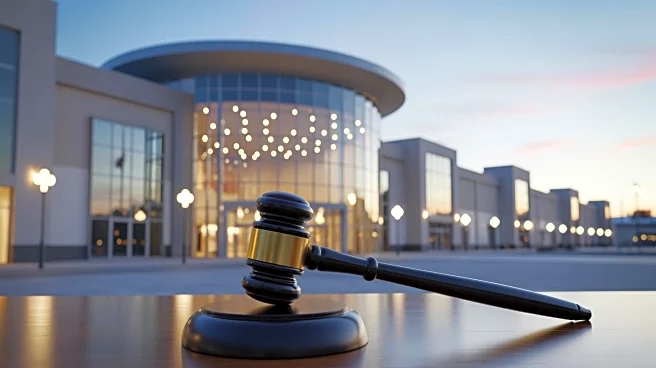What is the story about?
What's Happening?
Comedian Theo Von successfully urged the Department of Homeland Security to remove a video that featured an unauthorized clip of him. The video, posted on X, depicted Von speaking about deportations, followed by a montage of federal agents detaining individuals. Von publicly demanded compensation or removal of the video, stating that his views on immigration were more nuanced than the video suggested. DHS complied by deleting the video, and Von subsequently removed his demands. This incident is part of a broader pattern of DHS using meme-style videos to depict deportations, sometimes incorporating unauthorized content from public figures.
Why It's Important?
The removal of the video highlights the importance of respecting individuals' rights to control their likeness and content. It underscores the need for government agencies to adhere to ethical standards in media production, particularly when using content from public figures. The incident may prompt discussions about the portrayal of sensitive topics like immigration in government communications and the potential impact on public perception. It also raises awareness about the power of public figures to influence government actions through social media platforms.
What's Next?
DHS may need to reassess its approach to creating and distributing content, ensuring that it obtains proper authorization before using clips from public figures. This could lead to the development of stricter guidelines and oversight mechanisms within the agency. Theo Von's actions might inspire other public figures to be more vigilant about the use of their content by government entities, potentially leading to more public challenges and demands for accountability.
Beyond the Headlines
The incident reflects broader societal debates about immigration and the role of media in shaping public discourse. It highlights the ethical considerations involved in using media to depict complex issues and the responsibility of government agencies to present information accurately and sensitively. The case may influence future discussions on media ethics and the portrayal of immigration in public communications.















